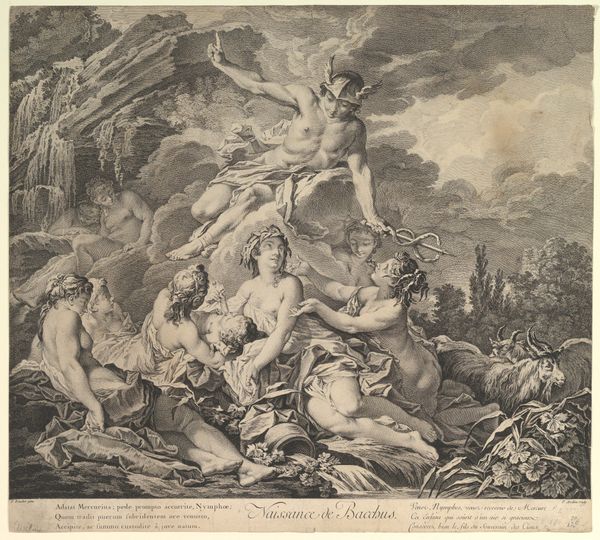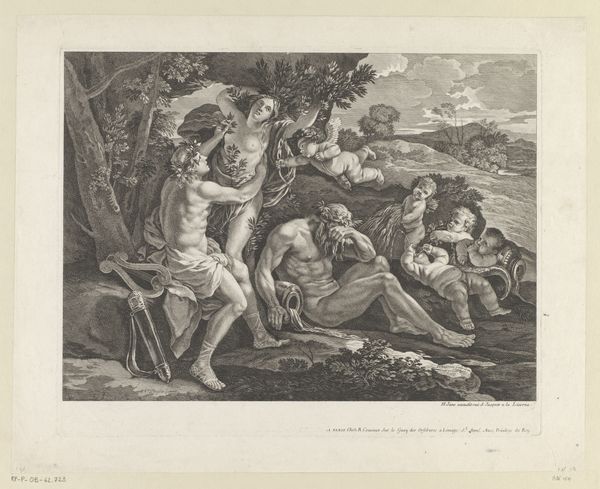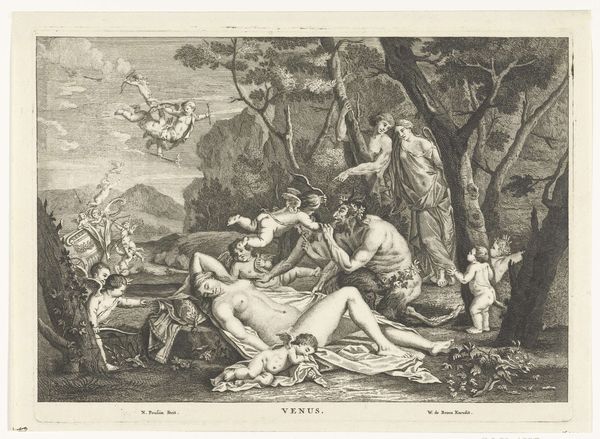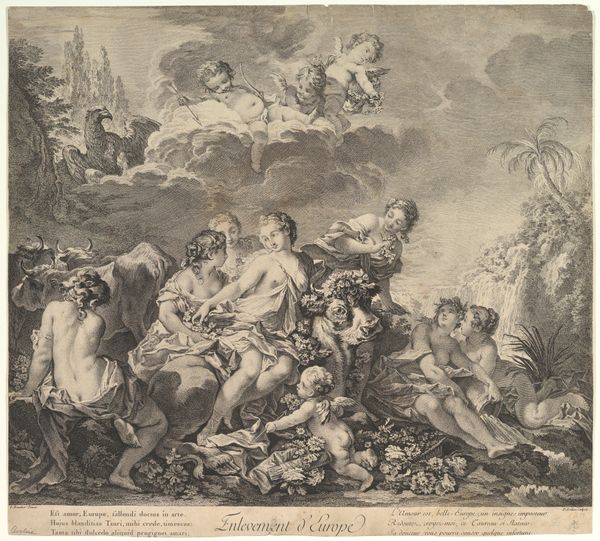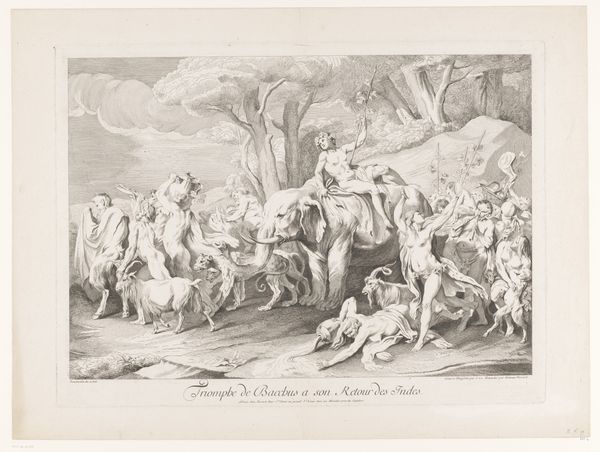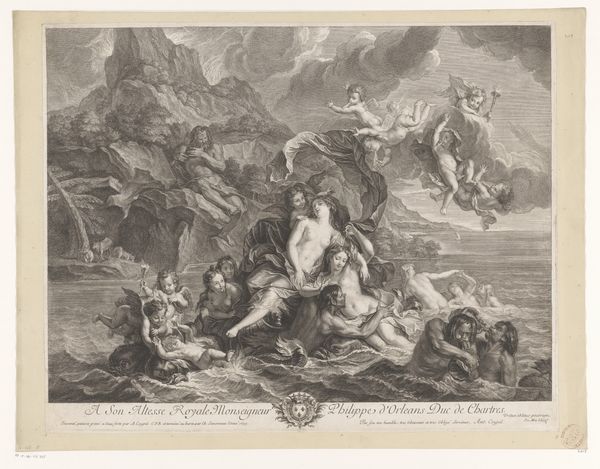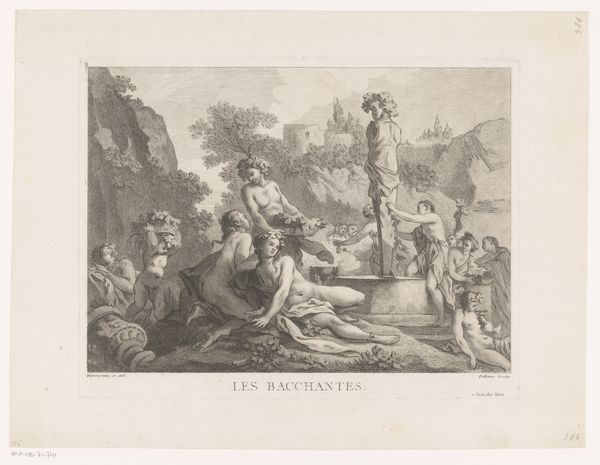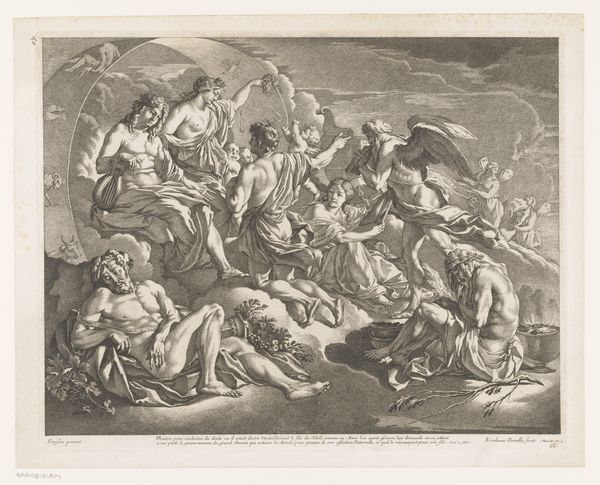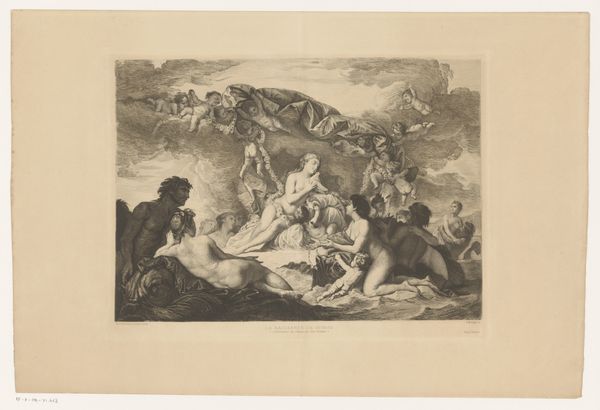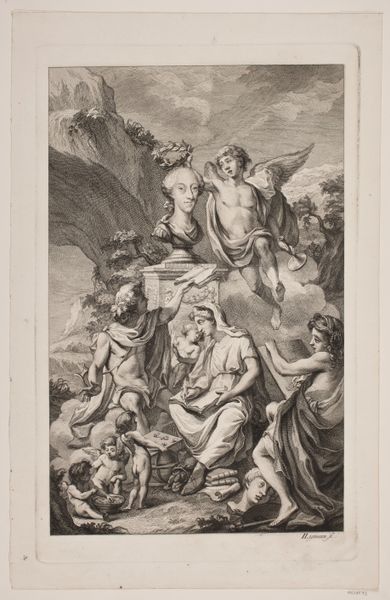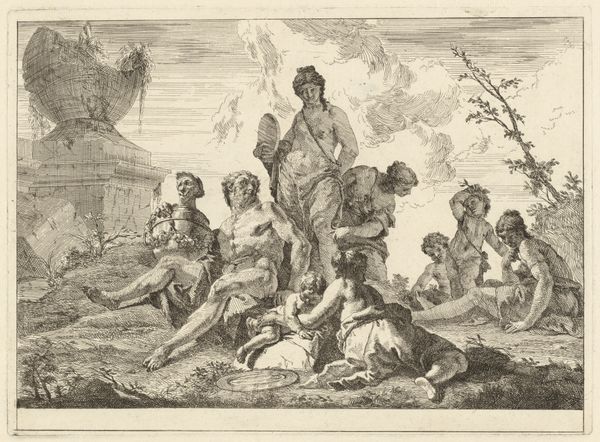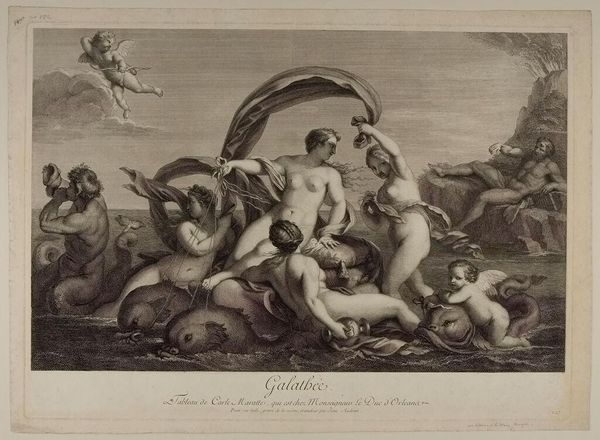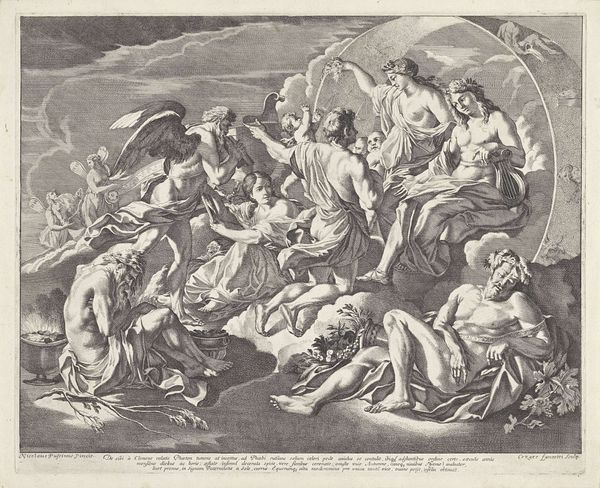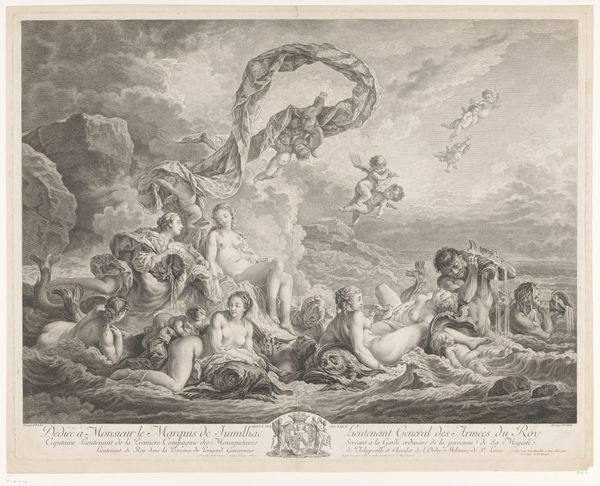
drawing, print, engraving
#
drawing
#
allegory
#
baroque
# print
#
female-nude
#
history-painting
#
nude
#
engraving
#
male-nude
Dimensions: Sheet (trimmed): 10 13/16 × 13 11/16 in. (27.5 × 34.8 cm)
Copyright: Public Domain
Pierre François Courtois made this print, Venus and Aeneas, in the 18th century using a technique called etching. Here, the material isn't paint or clay but a metal plate, likely copper, carefully worked to create an image through the controlled corrosion of acid. Look closely, and you'll notice the fine lines defining the figures and the landscape. These weren't drawn directly onto the plate; instead, Courtois coated it with a waxy, acid-resistant substance, then used a needle to scratch away the coating, exposing the metal. Dipping the plate in acid would then bite into the exposed lines, creating grooves that would hold ink. This printmaking process, enabled the mass production of images, aligning with emerging capitalist modes of production. The artistry lies not just in the composition, but in the precise control of the etching process. Courtois' skill is evident in the tonal variations he achieved, creating depth and atmosphere. By embracing this reproducible medium, he engaged with the visual culture of his time, blurring the boundaries between art and industry.
Comments
No comments
Be the first to comment and join the conversation on the ultimate creative platform.
